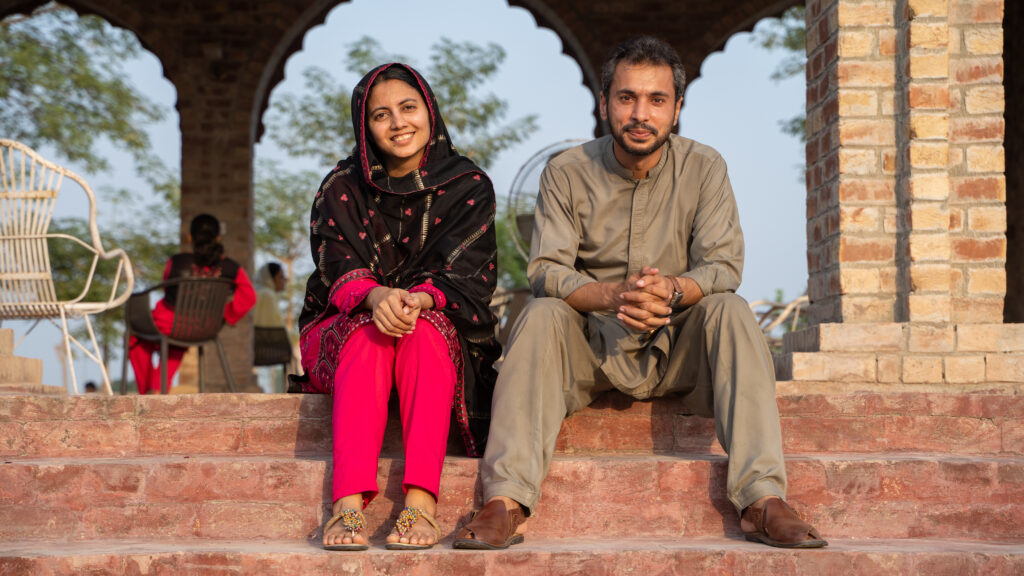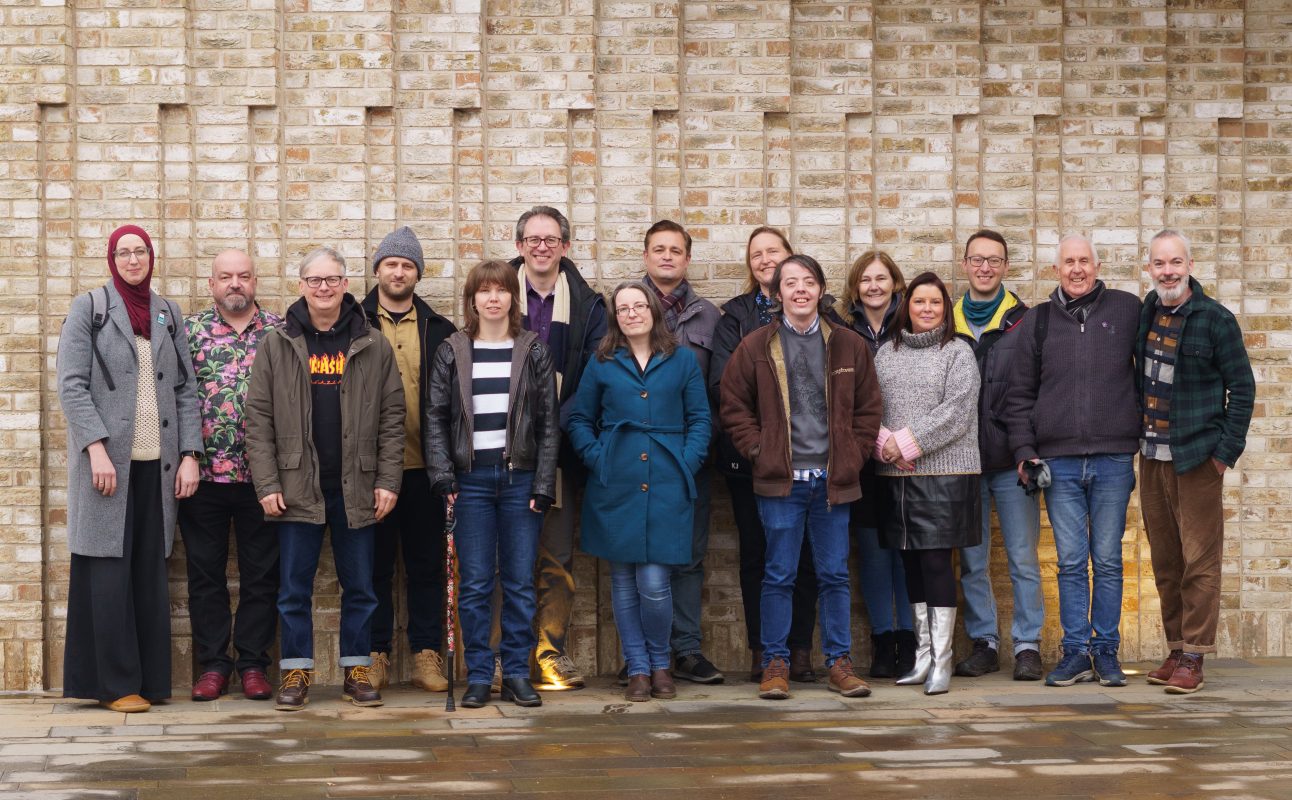
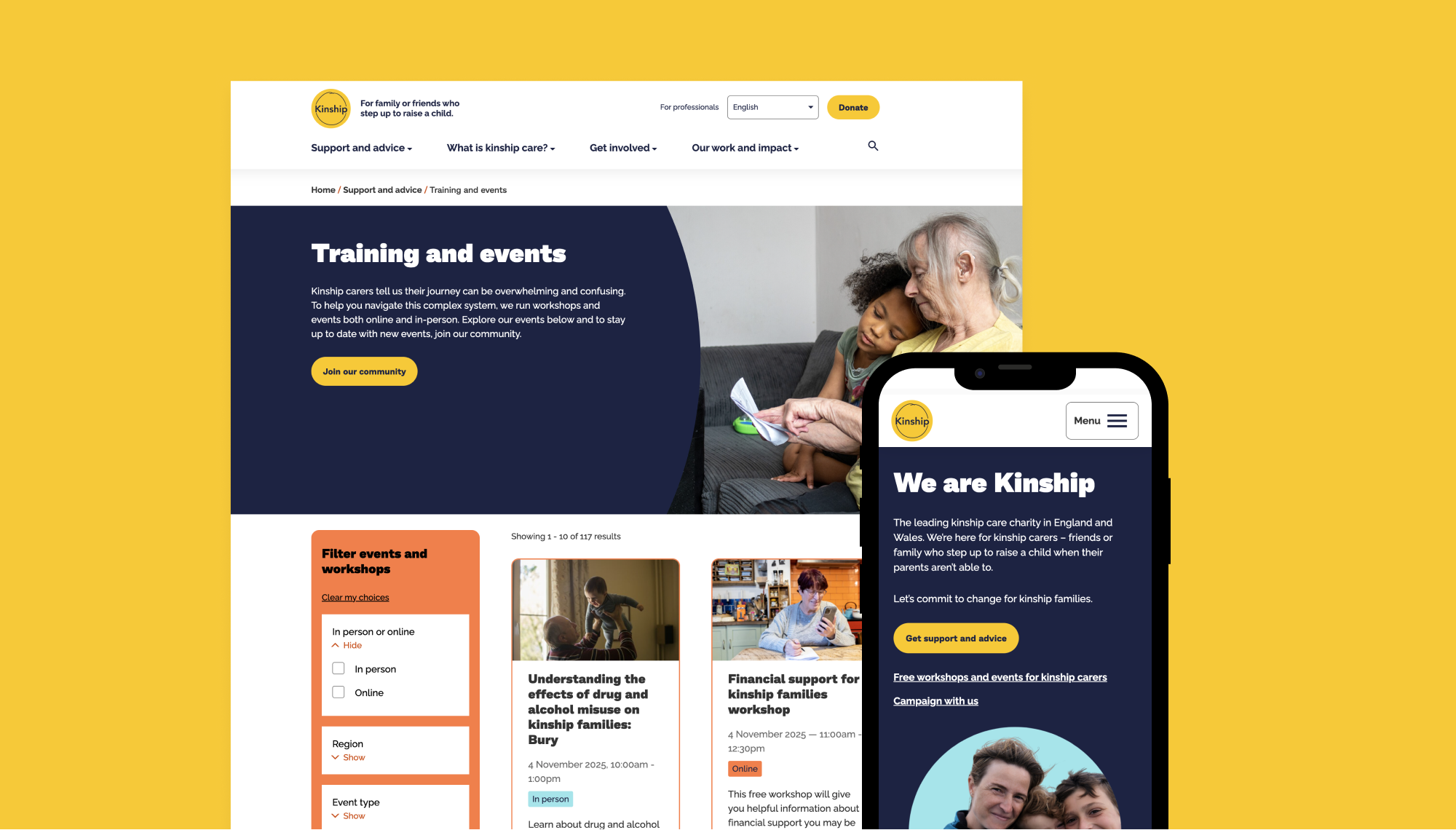
About the client
Kinship carers are friends or family who step up to raise a child when their parents aren’t able to, providing love and stability for the child. The role Kinship carers play in keeping 141,000 children in England and Wales out of the care system is overlooked and undervalued. There is no government support for kinship carers.
The Kinship charity provides advice, information, and support for kinship carers, helping them to navigate challenging circumstances. The charity also develops research, campaigns and policy solutions to raise the profile of kinship carers and create positive change across society.
About the project
Kinship had two websites:
- The main charity website spoke to a wide audience about the incredible role that kinship carers play in children’s lives and society and included Kinship’s campaigning and fundraising.
- The Kinship Compass website was for kinship carers, offering practical advice and support on their kinship journey.
The charity researched how people were using the websites which showed that bringing the two websites together into one website would be more effective and provide a clearer user experience.
Project goals:
- Migrate content and design a unified user experience under the one domain www.kinship.org.uk.
- Use the results from a Discovery phase to inform a human-centred information architecture and user experience
- Give carers the ability to find support and care in their area
- Boost technical SEO performance to reach a wider audience
- Improve the CMS editing experience for the charity’s content editors
- Incorporate the new Kinship branding throughout the new website
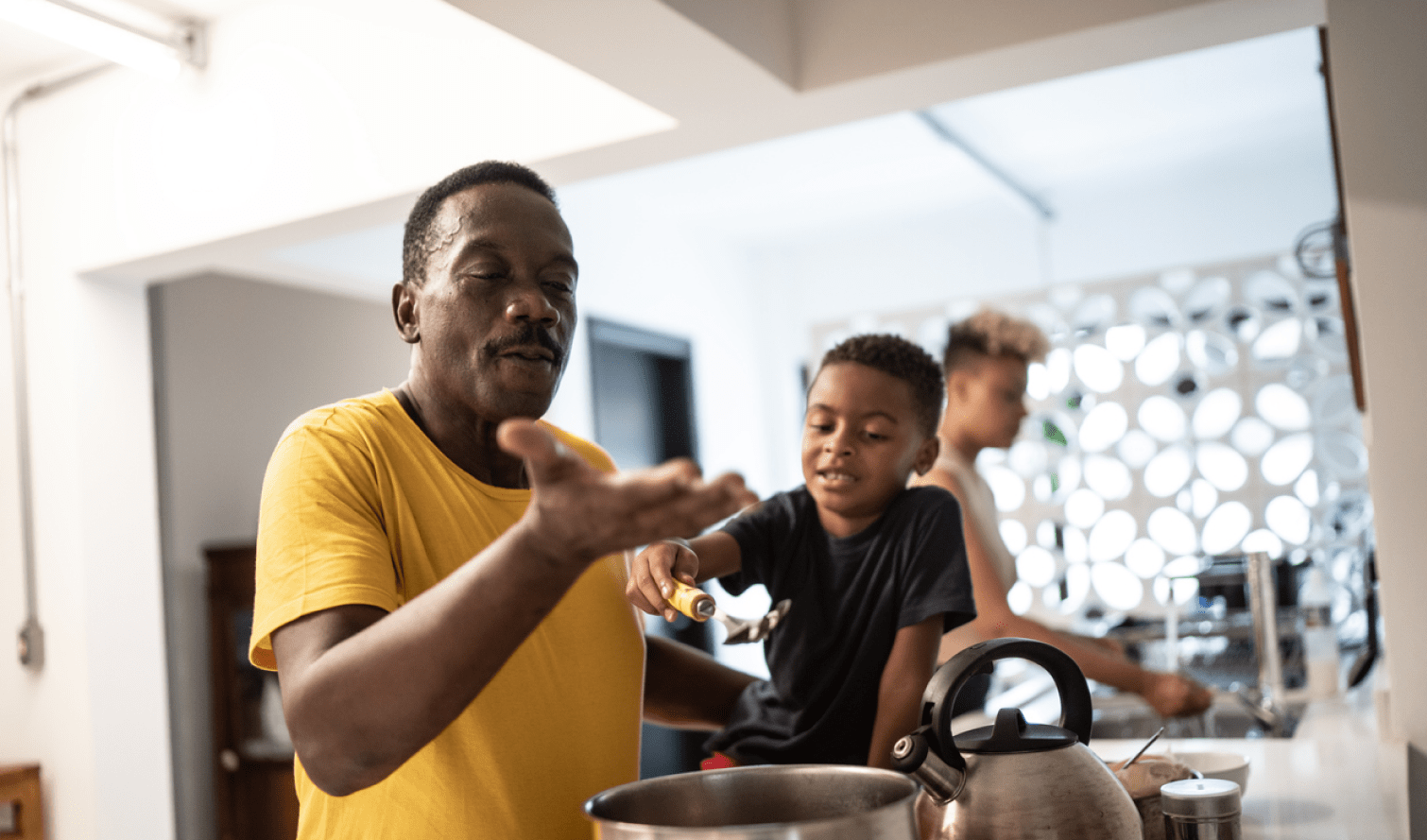
Kinship carers get no government support, despite raising 141,000 children. It was important for us to help connect them with the resources they need.
Discovery
We kicked off the project with a Discovery phase to extract user needs, including the needs of internal stakeholders. We:
- ran a series of stakeholder interviews and analysed the findings
- created mindmaps and user stories, and wireframed key areas of the new website for user acceptance testing
- tested the navigation with carers and professionals
- carried out a technical discovery to investigate the feasibility of deliverables
We prioritised the outcomes based on the positive impact they would bring to the organisation and the users (both internal and external).
Throughout the interviews, it became apparent there was a need to improve entry points and the cross-linking of content. For carers whose lives have potentially been turned upside down the initial options they were faced with might have added to their overwhelm.
Creating a single site
Because the Kinship Compass website had been built more recently, we used this as a springboard for our design and development work by utilising and extending the codebase, templates and styles. This helped to keep the costs lower for the client, rather than undertaking a full redesign.
We extended the component suite to make improvements across the website templates, making it easier for the client to create and maintain content and improve the user experience.
We managed a custom migration to pull across data for news posts, media items, and URL redirects from the existing two websites and consolidated this into the new website.
Refreshing the charity’s visual identity
The charity used this opportunity to review and update the Kinship visual identity. We carried out a design update to the components and templates with an updated colour palette, photographic direction, and fonts.
User testing
We ran User Acceptance Testing (UAT) on 3 key areas of the site:
- Finding support and content near you: looking at the postcode search
- Finding advice: testing global navigation patterns
- Roadshow event: testing the listings page
Due to time constraints, and the amount we wanted to test, it was decided that the UAT would be based on a Figma interactive prototype designed with real content. We worked with Kinship to devise the questions and Kinship conducted the interviews and fed back the data.
This gave our team and the Kinship team a clear and evidenced pathway for how to move forward with the new website. Our focus was on ensuring carers could easily find and access support.
We then made improvements to the designs before the website was built out.
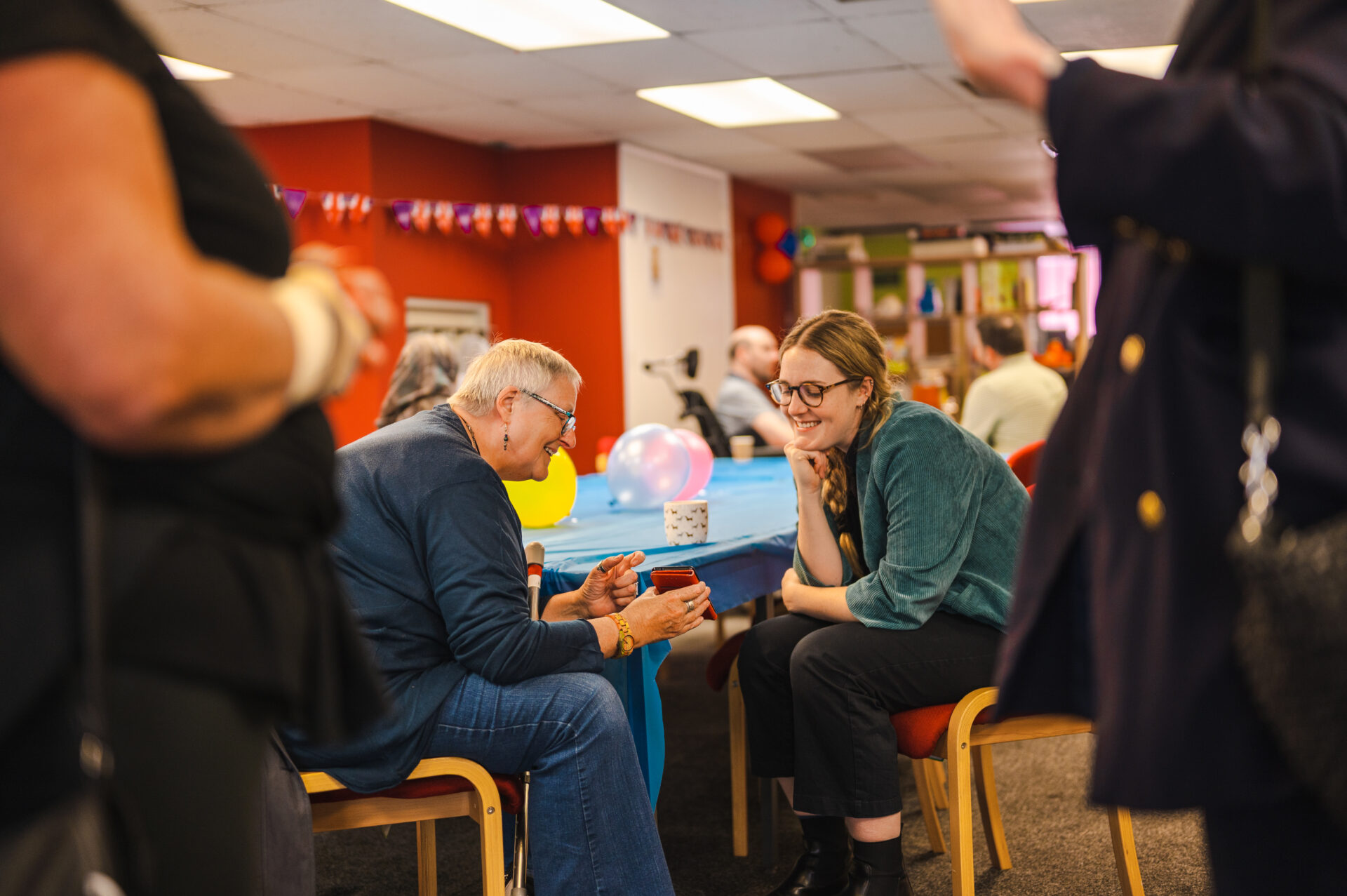
Providing a way for carers access to support in their local area
Kinship carers want to feel part of a wider community. The Kinship Compass ‘In your area’ service is very important as it gives localised, practical support and information for carers including training & events, peer support groups, and much more.
Carers can enter their postcode and see what support and services are available in their area. We built this as a custom solution within WordPress using the MapIT API to manage the geo-location searches when carers enter their postcode.
We used APIs to pull information from various sources. For example, details about local food banks is taken from the Give Food API. Being a Kinship carer comes with unexpected costs, so details about foodbanks is a sad but necessary detail.
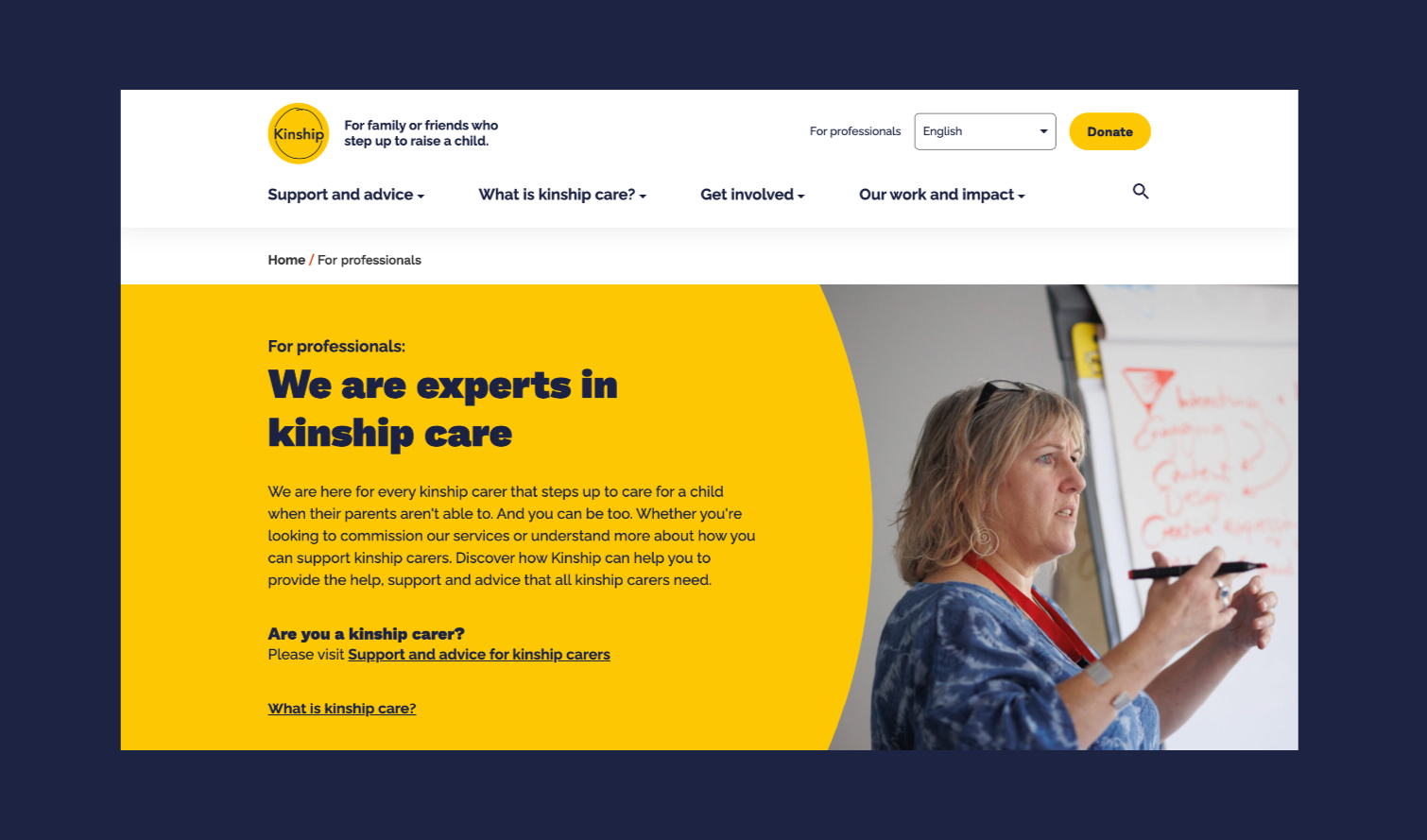
Boosting technical SEO performance
We pride ourselves on our clean and efficient code. Using Schema (Schema.org), we added structured metadata to the HTML templates to help search engines index the website content.
This makes it easier for search engines to understand the content and present the website to users in the search results. We paid particular attention to the structured data for job vacancies and events to make sure that these can be found easily.
We also redesigned how content is presented for the policy tracker – which tracks government policy around kinship care. The charity can share their views early and often to garner support for their policy work.
Improving the editing experience
We used WordPress to manage the website content which needs to be relevant and up to date. We made the media (i.e. images, videos, and audio) more manageable with a well-defined media library. We also added other content types including the constituency map
We improved security and usability by giving the charity the capability to add different user roles with different access levels to the CMS. We used PublishPress to improve the CMS workflow.
Ongoing partnership
We continue to work with Kinship supporting and maintaining their website, alongside specific iterative improvement projects when required.
